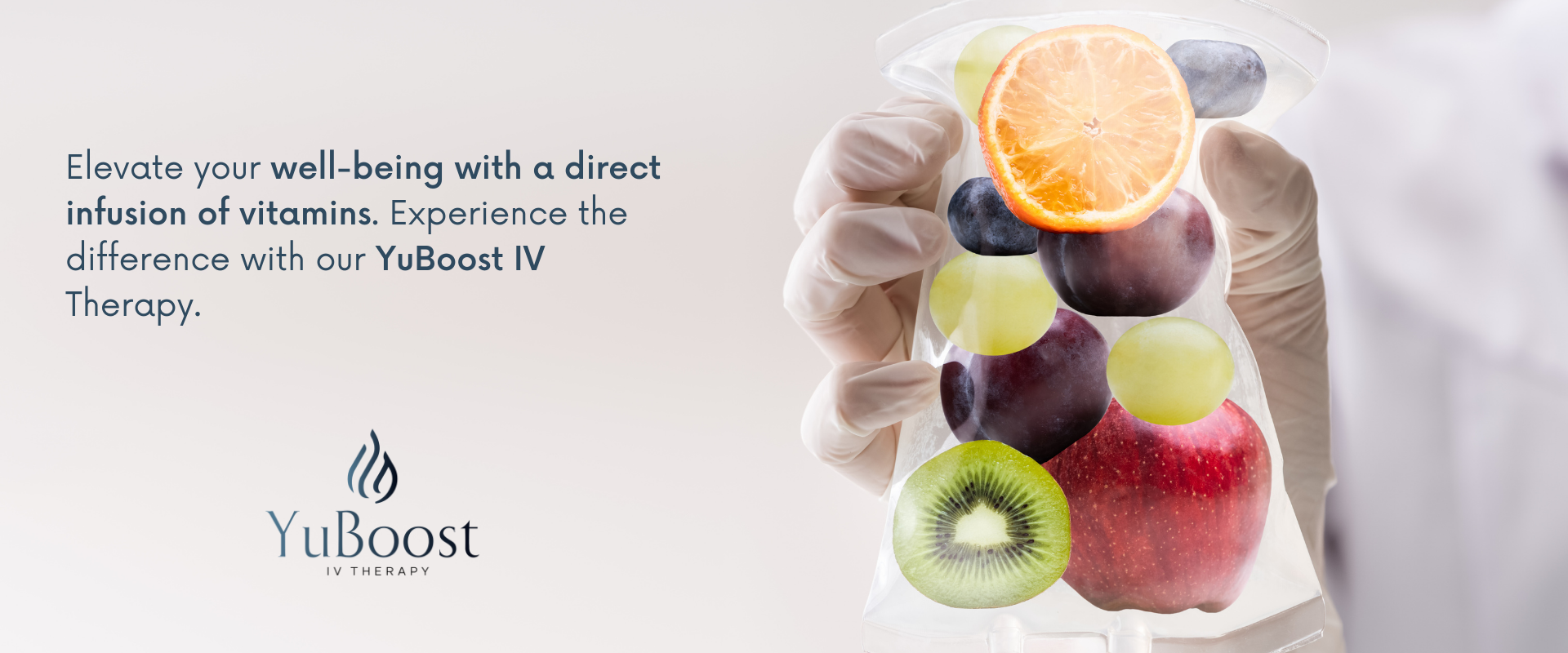What is the recommended vitamin intake?
Vitamins help ensure our body functions properly: skin healthiness, boosted immunity defences, keeping up energy levels, helping cells develop, preventing certain infections and diseases, etc. A daily dietary intake of vitamins is therefore vital to stay healthy. Vitamins are divided into two categories; those referred to as fat-soluble (vitamins A, D, E and K) and those known as water-soluble (vitamins B and C). Specific factors can lead to the onset of vitamin deficiency: this happens when there are insufficient vitamins in the diet, when the body has problems absorbing vitamins and in the case of some diseases and treatments. Age, amount of sun exposure and genetics can also bring about deficiencies. When a deficiency exists, a supplement such as an intravenous vitamin injection may be an option. Here, at YuBoost, we propose several IV therapies to effectively meet your body’s needs in vitamins, minerals and antioxidants.

What is the daily amount of vitamins to take?
As we mentioned before, vitamins are above all assimilated by our body through food and, as such, through our digestive wall. Although needs differ from one person to another, based on age and level of physical activity for example, the following daily vitamin B and C intake is recommended:
| Type of vitamin B | For women | For men |
| B1 | 1,1 mg | 1,2 mg |
| B2 | 1,1 mg | 1,3 mg |
| B3 | 14 mg | 16 mg |
| B5 | 5 mg | |
| B6 | 1,3 mg | |
| B8 | 30 mcg | |
| B9 | 400 mcg | |
| B12 | 2,4 mcg | |
A varied, balanced diet generally covers all our body’s needs. If you follow a vegetarian or vegan diet, you should be vigilant to avoid deficiencies, in particular vitamin B12, which is mainly found in products of animal origin (meat, fish, shellfish, eggs, dairy products). Seniors are also more vulnerable to deficiencies as our body assimilates vitamins less well with age.
In the event of a deficiency, different symptoms can appear: intense fatigue, muscle weakness, anaemia, digestive disorders, skin issues, lack of energy, etc. A vitamin supplement may as such be required. You can opt for an intravenous vitamin injection (IV therapy) to rapidly relieve your symptoms. The vitamin is assimilated directly into the bloodstream and you may feel the first effects immediately after the infusion, which last between 45 and 60 minutes.
What are the risks of taking too many vitamins?
To prevent any risk of overdosing, it’s vital to stick to a reasonable daily intake of vitamins. An excessive intake of vitamins B or C can cause side effects such as gastrointestinal disorders (stomach ache, nausea, diarrhoea, loss of appetite) and even insomnia. Effects can vary depending on the type of vitamin overdosed on. Excess vitamin C can, for example, cause the onset of urinary disorders. Over-intake of vitamin B can, on the other hand, cause skin reactions (inflammation, redness, itching, urticaria), arterial hypertension or hypotension, as well as neurological and psychological disorders (numbness of the limbs, mood disorders, depression). Niacin (vitamin B3) in particular should be taken with precaution as it can cause a great deal of side effects when high doses are taken; the tolerable upper intake level is estimated at 35 mg for an adult. In contrast, risks of overdosing are relatively low with vitamin B12.




